The gun goes off, signaling the athlete that it is time to start her run. Ten yards away, the first obstacle, a 10-foot wall, awaits. It is the first in a series of obstacles that include a running grid, a set of incline and decline monkey bars and a cargo net. As she starts, her thoughts are of the final half of the 160-yard course, which involves more running, an easier portion where she should make up for any time lost. Her goal is to complete it all in less than 63 seconds.
First, she has to conquer the wall. In her mind, this wall represents all the figurative walls in life she's faced. She strides forward, recalling the advice of her trainer. Her heart beats, ready to burst, but the nearly 75 people cheering her on makes her feel like she could conquer anything.
She takes a leap, grabs the rope and begins to propel herself to the top. She reaches the top and, though she can't take time to revel in it, she knows conquering the wall for the first time is one of the best feelings she's ever had.
For all the euphoria that Theresa Winterhalter, executive assistant for U.S. Army Forces Command G3, gets from participating in tri-fitness competitions, her introduction to the sport came under less than perfect times.
It was 2005 and she was serving in the Army Reserves when she was mobilized, ending up in Tampa, Fla., to work at the U.S. Army Central Command headquarters.
The assignment took her away from her sons Adam, 26, and Eden, 24, teenage daughters, Katy, 19, and Shannon, 17, and her husband, Sgt. 1st Class David Winterhalter, chief of the resource branch, Army Ground Forces Band, causing her to propel herself deeper into her running hobby.
"What else is there to do when separated from your family'" Winterhalter said. "Tampa's one of the best places to run. It's flat and there are beaches and a large running community."
She was injured while training. While recovering, she read about tri-fitness in a magazine, and noted the competition is based in Tampa. She decided to give it a go.
"I went out to a weekend training camp in April 2006 and got hooked," Winterhalter said.
It is a hook that caught deep. Three years and seven competitions later, that fire and competitive spirit still burn deep inside, said Winterhalter.
The desire to improve has helped her hold her own in competitions in both her own age and multiple other age divisions.
Winterhalter has placed times in the obstacle course that rival most. Her average times, in the low 50s (she posted a 0:52.06) are some of the best times recorded. She is currently ranked eighth in the world in the obstacle course in her division.
"To even make the list is an accomplishment," she said. "(However) the goal is to get better."
Getting better is a goal she has managed to obtain in each competition, improving her time for the obstacle course each time.
However, not all of her training can be dedicated to the obstacle course, as the competition is comprised of other events. The tri-fitness competition is a four- event program that includes an obstacle course, a fitness skills test (bench press, box jump, shuttle run), a 2-minute fitness routine and a grace and physique portion.
Excelling at tri-fitness requires a competitor to be able to unite all these segments of the competition into a stellar performance.
For Winterhalter, tri-fitness training has had an impact beyond the different events in the competition. While she discovered the sport while separated from her family, Winterhalter's participation has brought the family closer. Katy, a sophomore at the University of Georgia studying to become a physical therapist, and Shannon, a junior at Union Grove High School, both began participating in the sport after seeing their mother perform.
"I chose to participate in tri-fitness because I saw how much fun my mom had while she practiced for the competitions," Katy said.
It wasn't much of a surprise for David, an athlete who did a lot of athletics with his wife prior to knee issues.
"Our kids were both gymnasts, both in good shape, both tough little girls," he said.
Having her daughters compete also provides additional support for Winterhalter, who said without her family's support, she couldn't participate.
Support was easy to come by from the family.
"She seemed happy about it, it gave her something to do and it is good for her," David said. "I was a little surprised due to the unique nature (of the competition), but I know she's always been athletic."
Winterhalter has a background as a swimmer and diver, and competes in National Physique Committee fitness, an amateur fitness and physique competition.
"I'm very proud of her," David said. "It benefits her and enriches us."
That's not to say being supportive never causes some eyebrows to rise.
"My husband thinks it is crazy getting up at 4:15 in the morning, but he's always supportive," Winterhalter said.
Craziness is necessary to perform at peak performance by getting in the best shape possible, she added. However, while being in good shape is a benefit, it is not necessarily a prerequisite for trying tri-fitness.
"You don't need to be a fitness expert," Winterhalter said. "You can take anyone in any shape to complete the obstacle course."
Completing the course was never enough for Winterhalter, who trains diligently for two competitions a year. In her most recent competition, the 2009 Women's Tri-Fitness World Championships, held in Las Vegas July 9 through 12, she beat out 14 other competitors in her division and placed 19th overall out of 170 competitors.
Winterhalter has already begun training for her next competition, to be held on Nov. 12.
"I'm doing things like in the Army, lots of reps, push and pull exercises and a lot of body weight exercises," she said of her current training.
Training also consists of polymetrics, exercises like box and squat jumps designed to produce fast, powerful movements, and isolating one part of a body per workout, Winterhalter said. Her current daily workout splits are legs, shoulders, back, arms, chest and a day dedicated solely to polymetrics.
Winterhalter said she hopes the training helps her max out the bench press portion of the fitness skills event, where a competitor aims to lift a percentage of body weight for 50 straight repetitions.
"My highest is 44," Winterhalter said, adding her target weight is 65 pounds.
Besides weight training, she also engages in morning cardio sessions seven days a week. Each session lasts between 30 to 35 minutes and consists of various cardiovascular exercises, such as running and riding the stationary bike. As she progresses further into her 12-week training program, Winterhalter said she will complete additional evening cardio sessions, starting with three times a week, until they are eventually doubled two weeks prior to the competition.
The cardio helps shed pounds, which is important because of the competition's visual aspect in regards to the fitness routine and swimsuit portions. Dieting plays a vital role to her success.
"It can be very challenging," Winterhalter said of dieting, but added eating healthy is normal for her. Her diet consists of six or seven small meals a day, with a balance of healthy fats, clean carbohydrates (such as brown rice) and no sugars or treats. She said she averages 2,000 to 2,400 calories a day and drinks around two gallons of water.
"We all had to get used to changes in her meal plan, but we manage," David said of the changes Winterhalter's diet put on family dining habits. "It can be a challenge, but we support where we can."
Although preparing is a lot of work, Winterhalter believes the benefits extends beyond looking good in the mirror.
"I've made best friends doing tri-fitness. We've celebrated wedding anniversaries, births and encourage one another," she said. "You always walk away feeling like part of a group. Think of it as a competition, but a healthy competition without negativity."
David hopes people continue to take positive messages from what out of his wife's example. People often tell him that she inspires them, he added.
"She's a model for a new type of woman - concerned about fitness and health, eyes opened to the importance of maintaining health," he said. "She's a good example to never give up - anything is possible."
Katy agreed, saying she and her friends both look up to her mother.
"A lot of my friends know about her participating in fitness competitions. They see her as an inspiration because if she can do the things she loves with four kids and a full-time job - nothing should stop them from working for what they want," she said. "Seeing my mom work toward her goals in fitness has given me a newfound respect for her. I'm glad I have such a strong role model in my life."
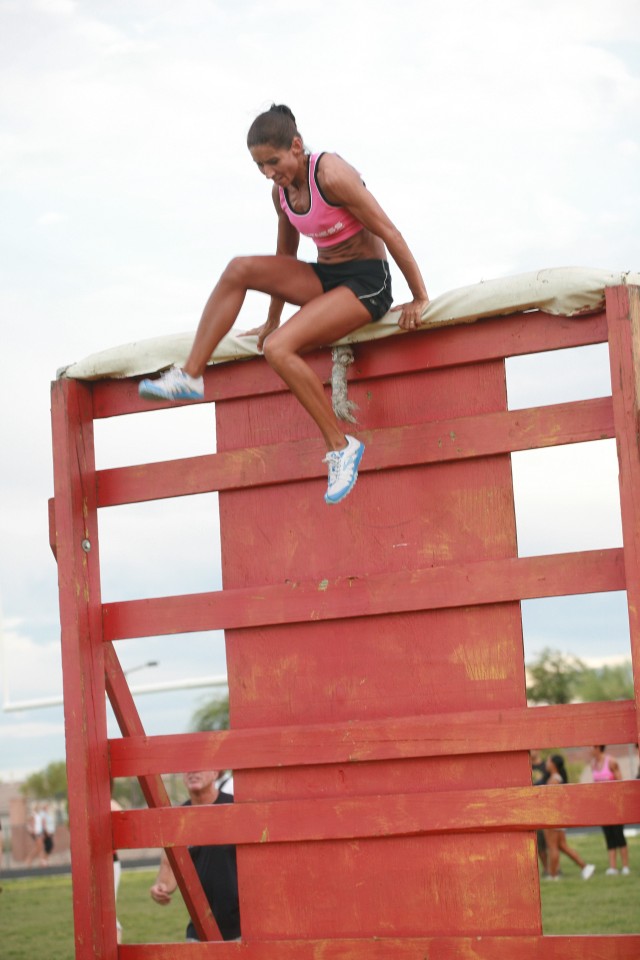

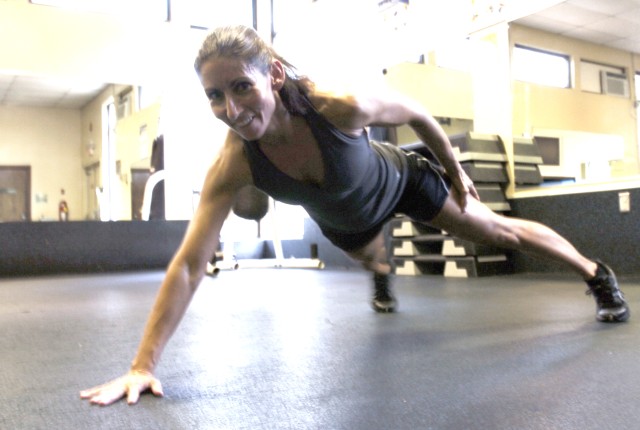
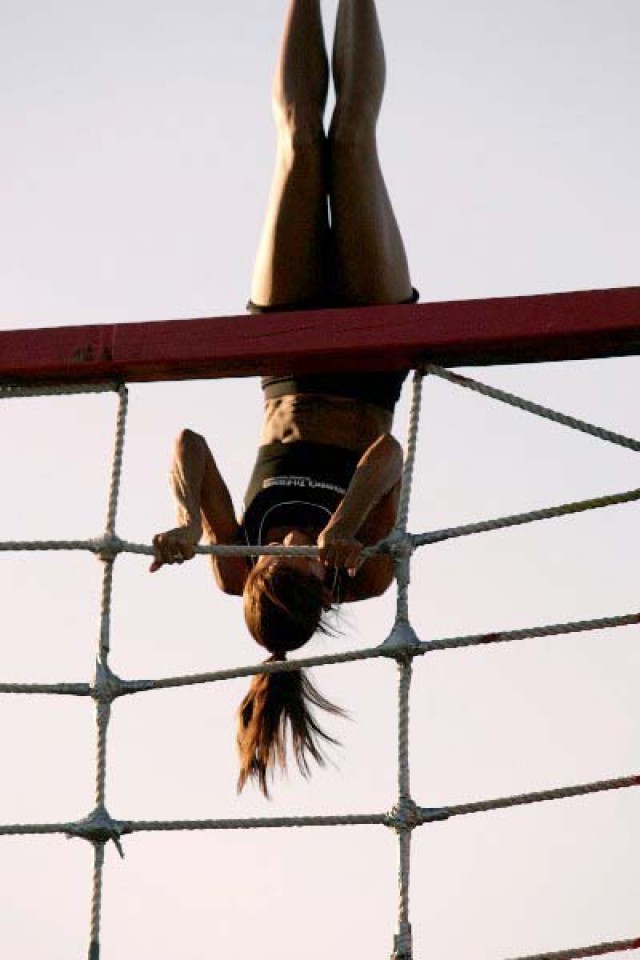
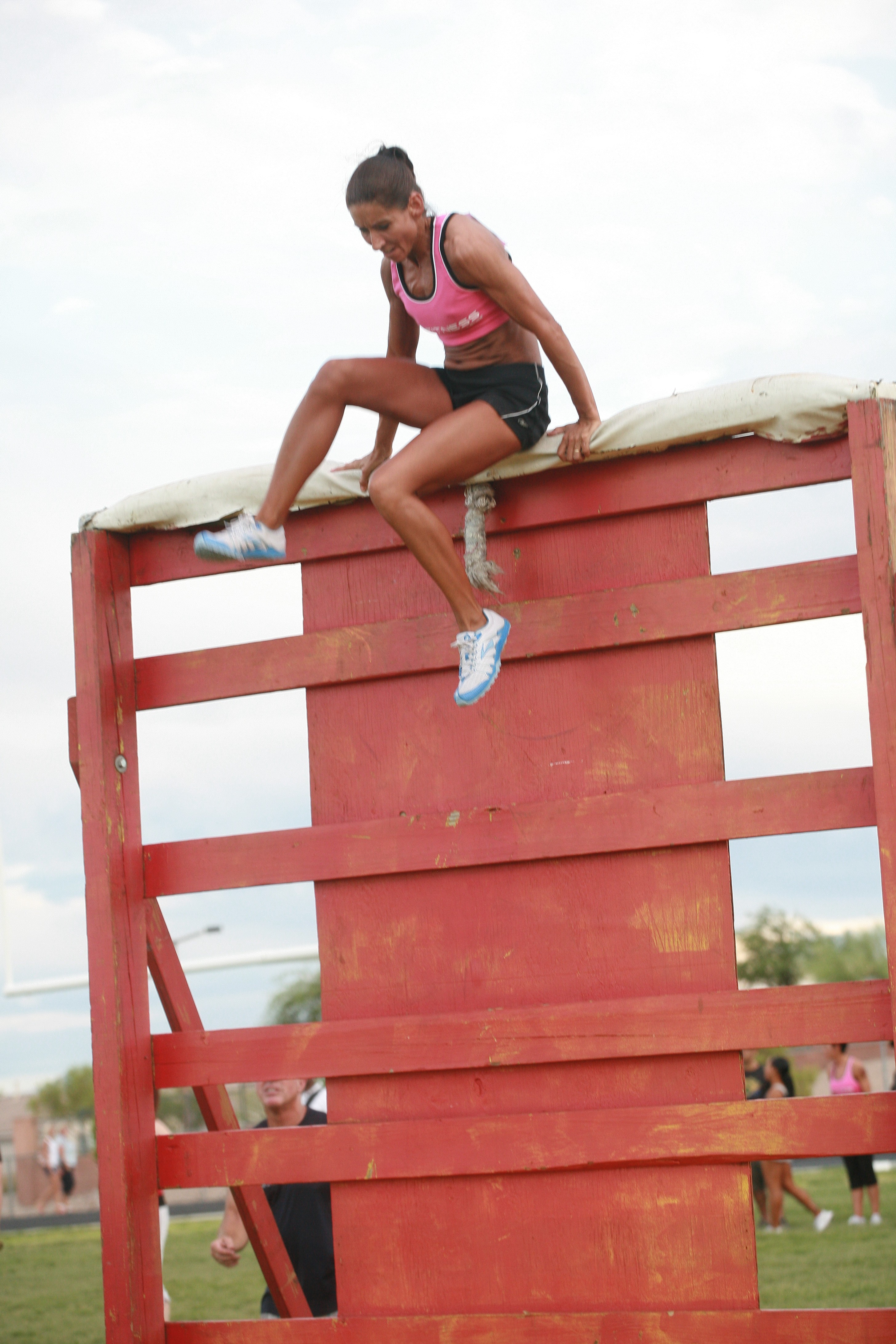

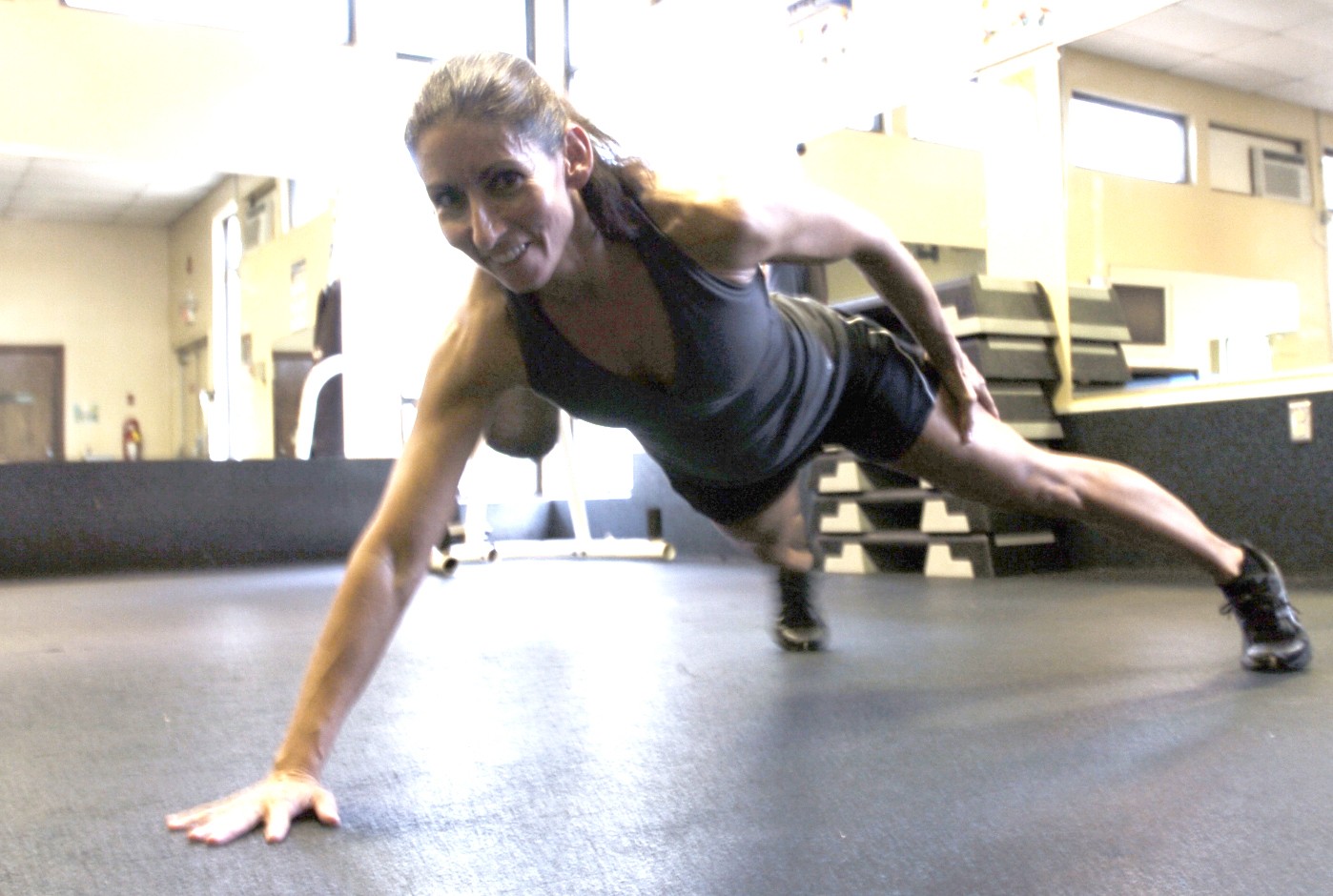
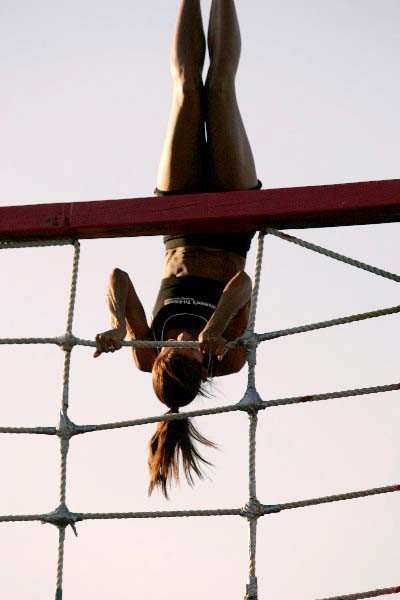
Social Sharing